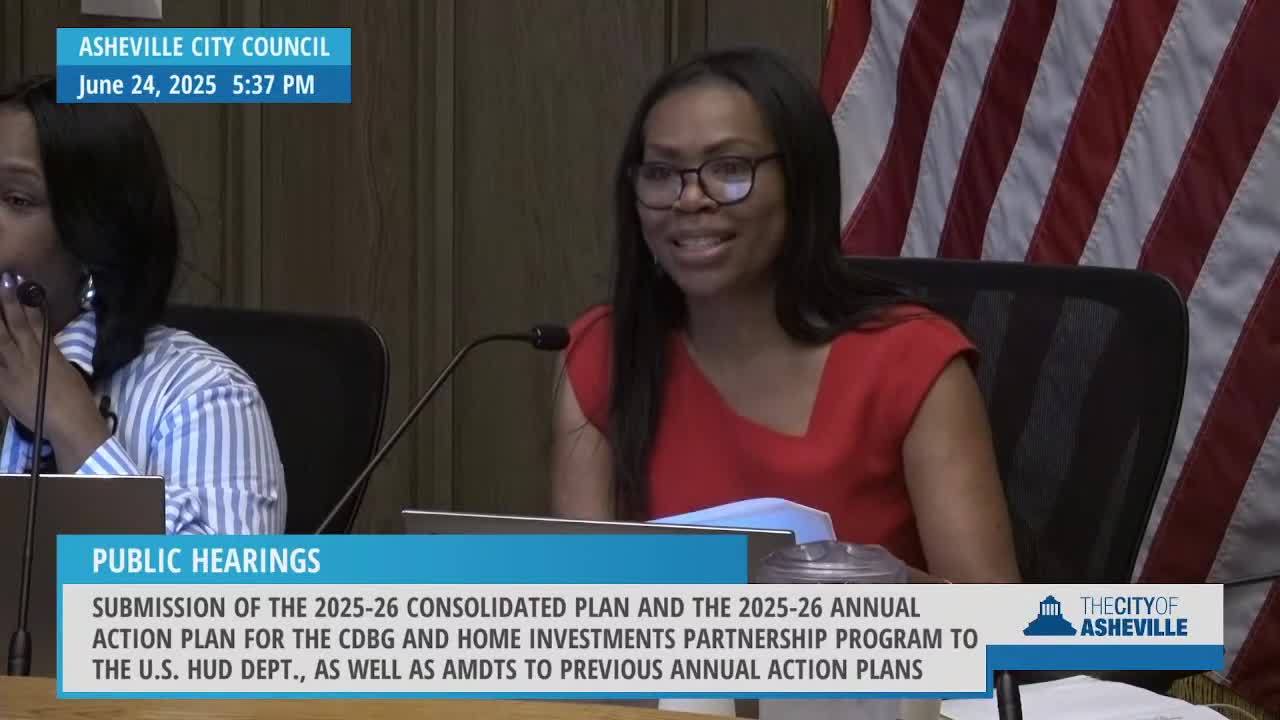Article not found
This article is no longer available. But don't worry—we've gathered other articles that discuss the same topic.
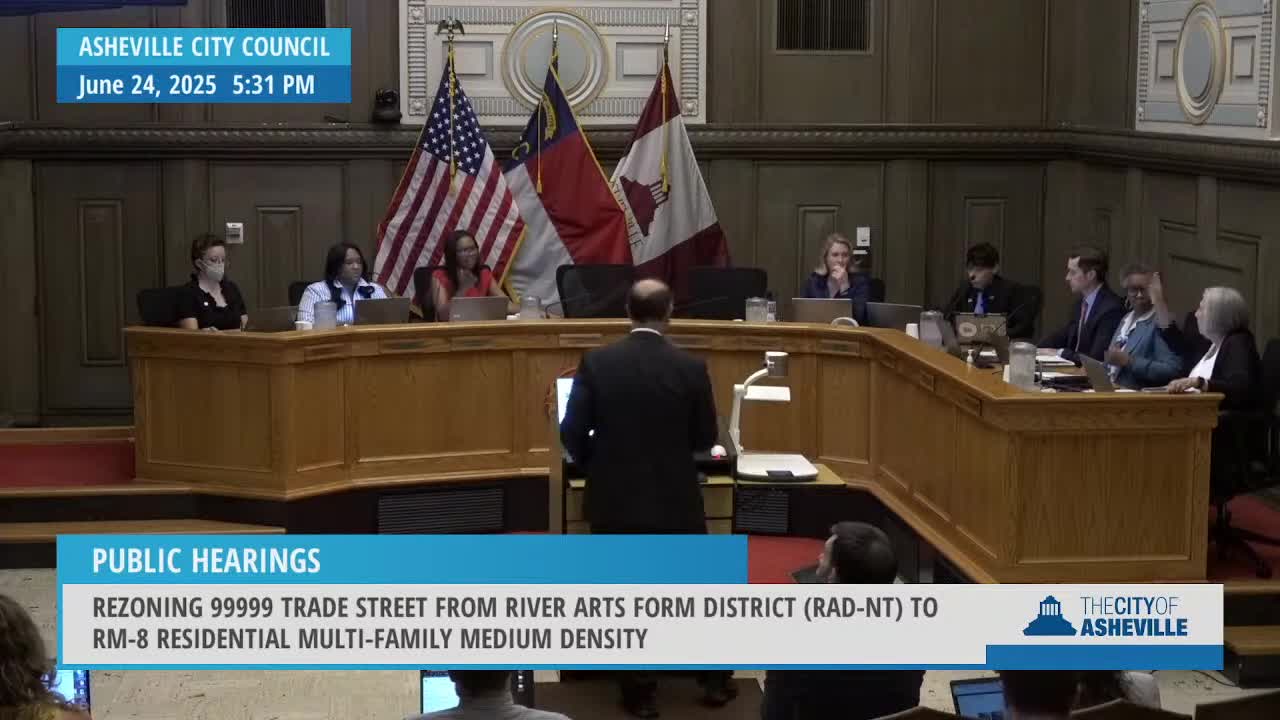
Council approves zoning text amendment to restore sidewalk‑related language removed in March ordinance
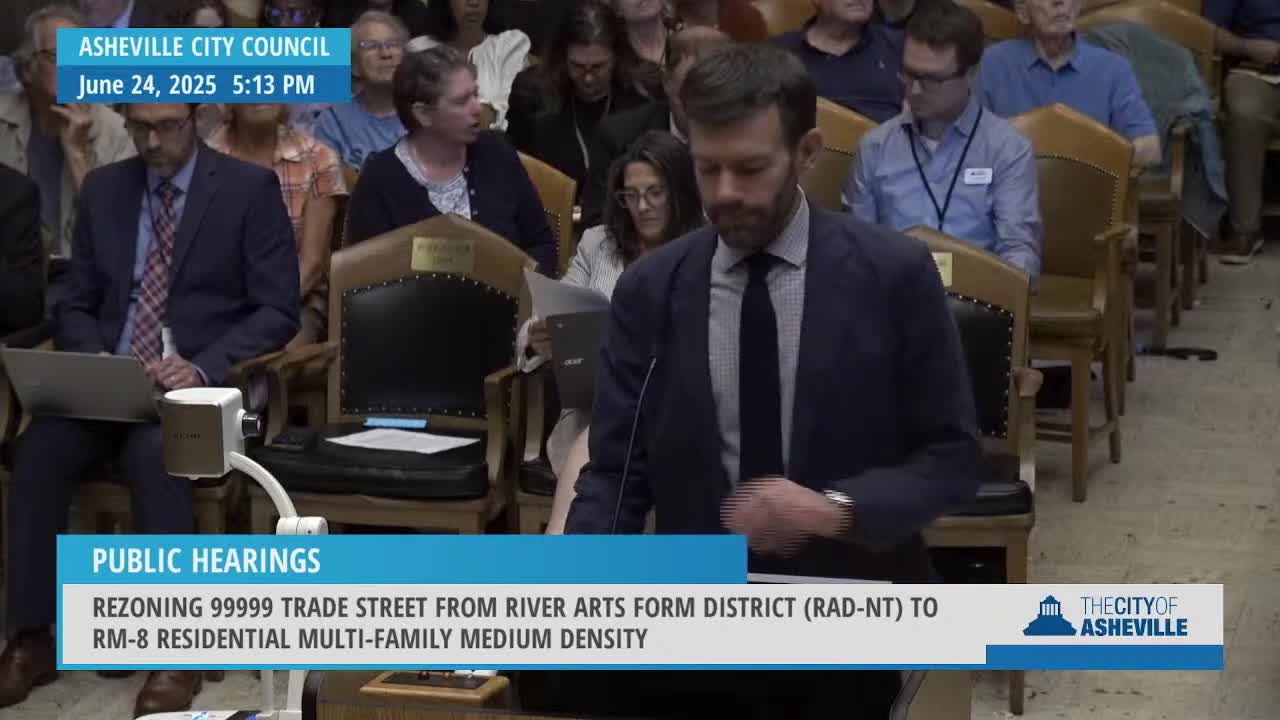
Council pauses rezoning request for 99999 Trade Street after title and right‑of‑way questions
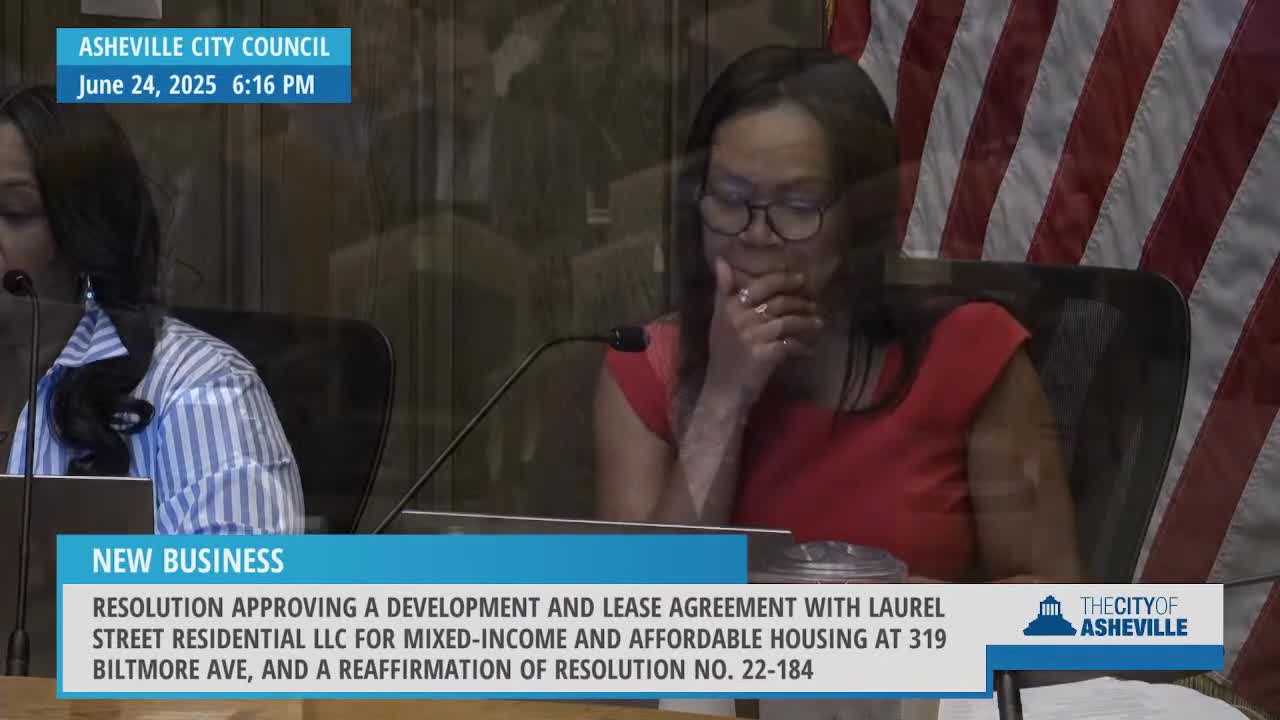
Council reaffirms 319 Biltmore redevelopment plan and authorizes gap loan and tax grant for mixed‑income project
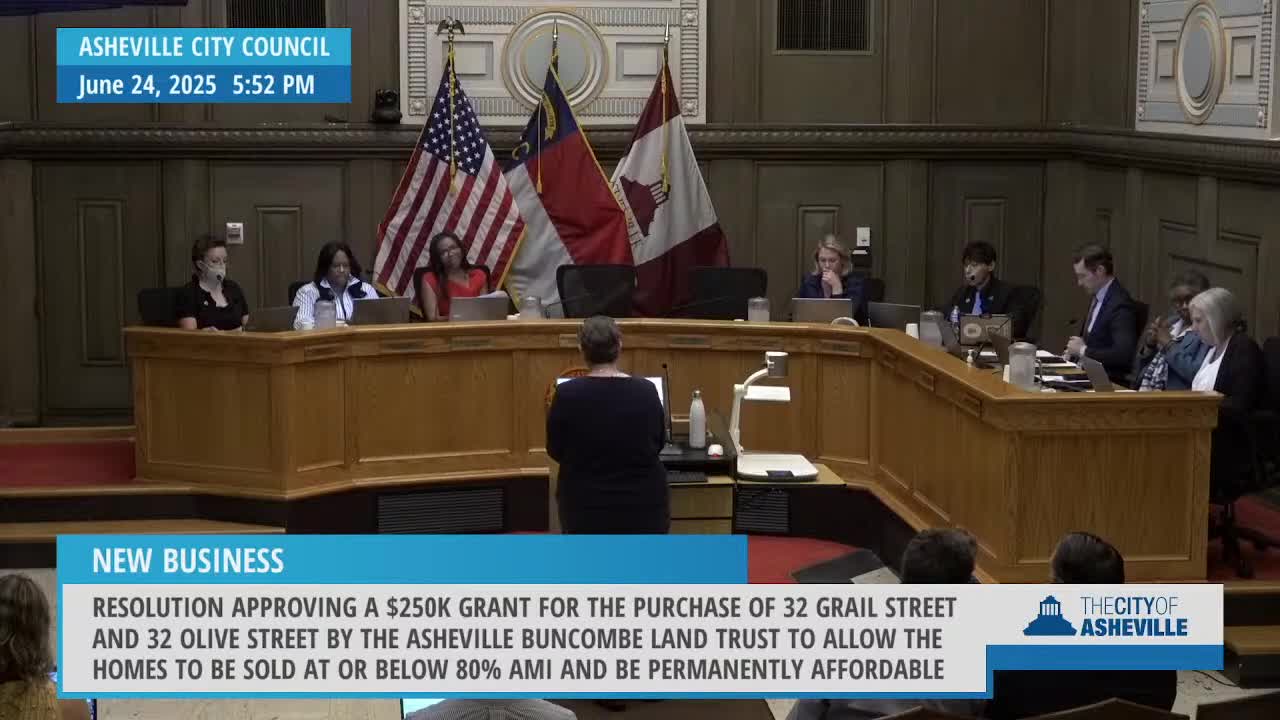
Council awards $250,000 from 2016 bond funds to Asheville Buncombe Community Land Trust for two permanently affordable homes
